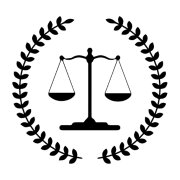Best Landlord & Tenant Lawyers in Senegal
Share your needs with us, get contacted by law firms.
Free. Takes 2 min.
Free Guide to Hiring a Real Estate Lawyer
Or refine your search by selecting a city:
List of the best lawyers in Senegal
About Landlord & Tenant Law in Senegal:
Landlord & Tenant law in Senegal governs the relationship between property owners (landlords) and renters (tenants). This legal framework outlines the rights and responsibilities of both parties, including issues related to rent payments, property maintenance, eviction procedures, and dispute resolution.
Why You May Need a Lawyer:
There are several situations where you may require legal assistance in Landlord & Tenant matters in Senegal. These may include disputes over lease agreements, eviction notices, security deposits, property damage, or violations of tenant rights. A lawyer can help you understand your legal rights, negotiate with the other party, and represent you in court if necessary.
Local Laws Overview:
In Senegal, the Landlord & Tenant law is primarily governed by the Civil Code and additional regulations specific to rental properties. Key aspects of the law include the maximum deposit amount allowed, the notice period for eviction, the landlord's obligations for property maintenance, and the rights of tenants in case of disputes.
Frequently Asked Questions:
1. Can a landlord increase rent without notice?
No, under Senegalese law, a landlord must provide written notice to the tenant before increasing rent. The notice period may vary depending on the type of lease agreement in place.
2. What are the rights of a tenant regarding repairs and maintenance?
Landlords are responsible for maintaining the property in a habitable condition, which includes making necessary repairs and addressing any health or safety hazards. Tenants have the right to request repairs and withhold rent if the landlord fails to address maintenance issues.
3. How can a tenant terminate a lease agreement early?
A tenant can terminate a lease agreement early by providing written notice to the landlord in advance. The notice period and conditions for early termination may be outlined in the lease contract.
4. What can a landlord do if a tenant fails to pay rent?
If a tenant fails to pay rent, the landlord can issue a formal notice to the tenant demanding payment. If the tenant still does not pay, the landlord may initiate legal proceedings for eviction.
5. Can a landlord enter the rental property without permission?
Under Senegalese law, a landlord must obtain the tenant's consent before entering the rental property, except in cases of emergency or necessary repairs. The landlord must provide reasonable notice to the tenant before entering the premises.
6. What are the procedures for eviction in Senegal?
Eviction procedures in Senegal involve providing written notice to the tenant, followed by legal action if the tenant does not vacate the property voluntarily. The court may issue an eviction order if the landlord can prove just cause for eviction.
7. Are there laws protecting tenants from unfair practices by landlords?
Yes, Senegal has laws that protect tenants from unfair practices by landlords, such as illegal eviction, rent increases without notice, discrimination, and harassment. Tenants have the right to seek legal recourse if they believe their rights have been violated.
8. Can a tenant sublease the rental property to another party?
In most cases, a tenant must obtain the landlord's permission before subleasing the rental property to another party. The terms and conditions of subleasing may be outlined in the lease agreement.
9. What are the rights of tenants regarding security deposits?
Senegalese law limits the amount that landlords can request as a security deposit from tenants. The security deposit must be returned to the tenant at the end of the lease, minus any deductions for damages or unpaid rent.
10. How can a tenant resolve disputes with their landlord?
If a tenant has a dispute with their landlord, they can try to resolve it through negotiation or mediation. If the dispute cannot be resolved informally, the tenant may seek legal advice or file a complaint with the relevant authorities.
Additional Resources:
For legal advice and assistance in Landlord & Tenant matters in Senegal, you may contact the Senegalese Bar Association, the Ministry of Housing and Urban Development, or a local legal aid organization. These resources can provide guidance and support for individuals facing legal issues related to rental properties.
Next Steps:
If you require legal assistance in Landlord & Tenant matters in Senegal, it is advisable to consult with a qualified lawyer who specializes in real estate law. A lawyer can help you understand your rights, negotiate with the other party, and advocate for your interests in legal proceedings if necessary. Be sure to gather all relevant documents and information related to your case before meeting with a lawyer to ensure a thorough evaluation of your situation.
Lawzana helps you find the best lawyers and law firms in Senegal through a curated and pre-screened list of qualified legal professionals. Our platform offers rankings and detailed profiles of attorneys and law firms, allowing you to compare based on practice areas, including Landlord & Tenant, experience, and client feedback.
Each profile includes a description of the firm's areas of practice, client reviews, team members and partners, year of establishment, spoken languages, office locations, contact information, social media presence, and any published articles or resources. Most firms on our platform speak English and are experienced in both local and international legal matters.
Get a quote from top-rated law firms in Senegal — quickly, securely, and without unnecessary hassle.
Disclaimer:
The information provided on this page is for general informational purposes only and does not constitute legal advice. While we strive to ensure the accuracy and relevance of the content, legal information may change over time, and interpretations of the law can vary. You should always consult with a qualified legal professional for advice specific to your situation.
We disclaim all liability for actions taken or not taken based on the content of this page. If you believe any information is incorrect or outdated, please contact us, and we will review and update it where appropriate.
Browse landlord & tenant law firms by city in Senegal
Refine your search by selecting a city.












